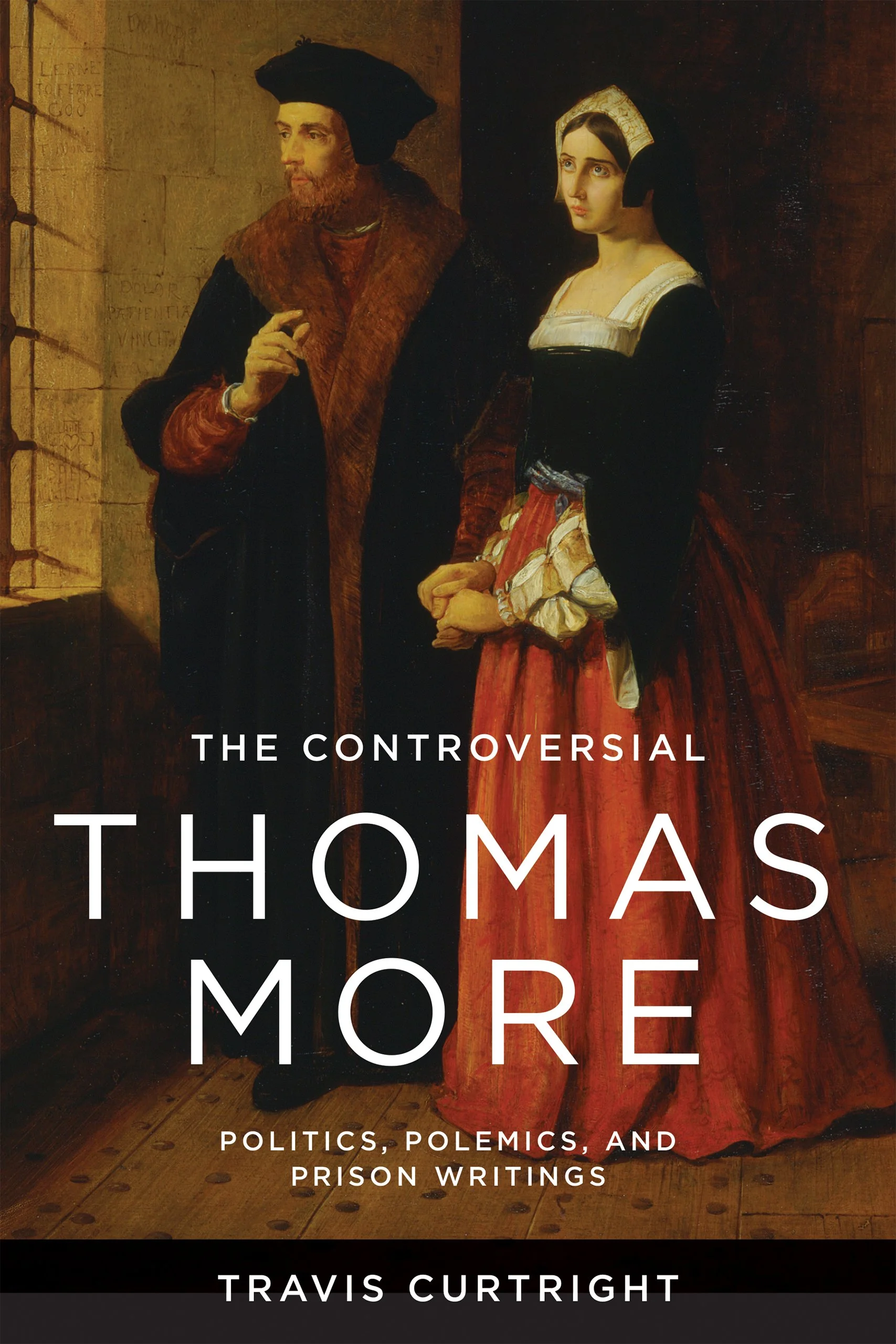The Controversial Thomas More
The Controversial Thomas More, from Notre Dame Press, examines More’s last years and prison writings and shows how he artfully opposed King Henry VIII from the Tower of London.
Thomas More is known for refusing the oath of succession and remaining silent about his reasons for doing so. His prison literature, however, tells a different story. Under the threat of execution, More waged an astonishingly prolific and often coded writing campaign in rebuke of King Henry VIII’s claim to be supreme head of the Church in England. Travis Curtright’s groundbreaking book shows how William Rastell, More’s nephew and printer, fashioned a historically inaccurate depiction of More, one that persists to this day. Rastell’s edition of More’s works gave the false impression that More stopped writing polemical literature in 1533 and, instead, turned his mind exclusively toward heaven and away from politics. In contrast, Curtright proves that More’s prison writings are not just devotional literature, but also a powerful defense of a united Church under the Pope, reestablishing More as a key political and religious thinker, defiant of King Henry VIII.
Most scholars restrict More’s political thought to his Utopia, but The Controversial Thomas More shows how his prison writings best reveal his ideas of political unity and authority, and is a reconsideration of More’s legacy and place in the history of the Henrician Reformation.
Travis Curtright is a professor of humanities and literature at Ave Maria University. He is the author or editor of four previous books, including The One Thomas More, and is the editor-in-chief of Moreana: Thomas More and Renaissance Studies.
“Anyone who wants to know exactly what the ‘man for all seasons’ was really thinking and writing about over the 15 months of his imprisonment in the Tower of London should read this book.”— Stephen Smith, co-editor of The Essential Works of Thomas More
“Curtright shows that More’s prison writings are not, as widely thought, meditations of a saint resigned to death, but the continuation of a complex literary project aiming to restore the unity of Christendom. Must reading for More scholars and a civic challenge to all More’s admirers.”—James R. Stoner, author of Common-Law and Liberal Theory: Rethinking American Constitutionalism

